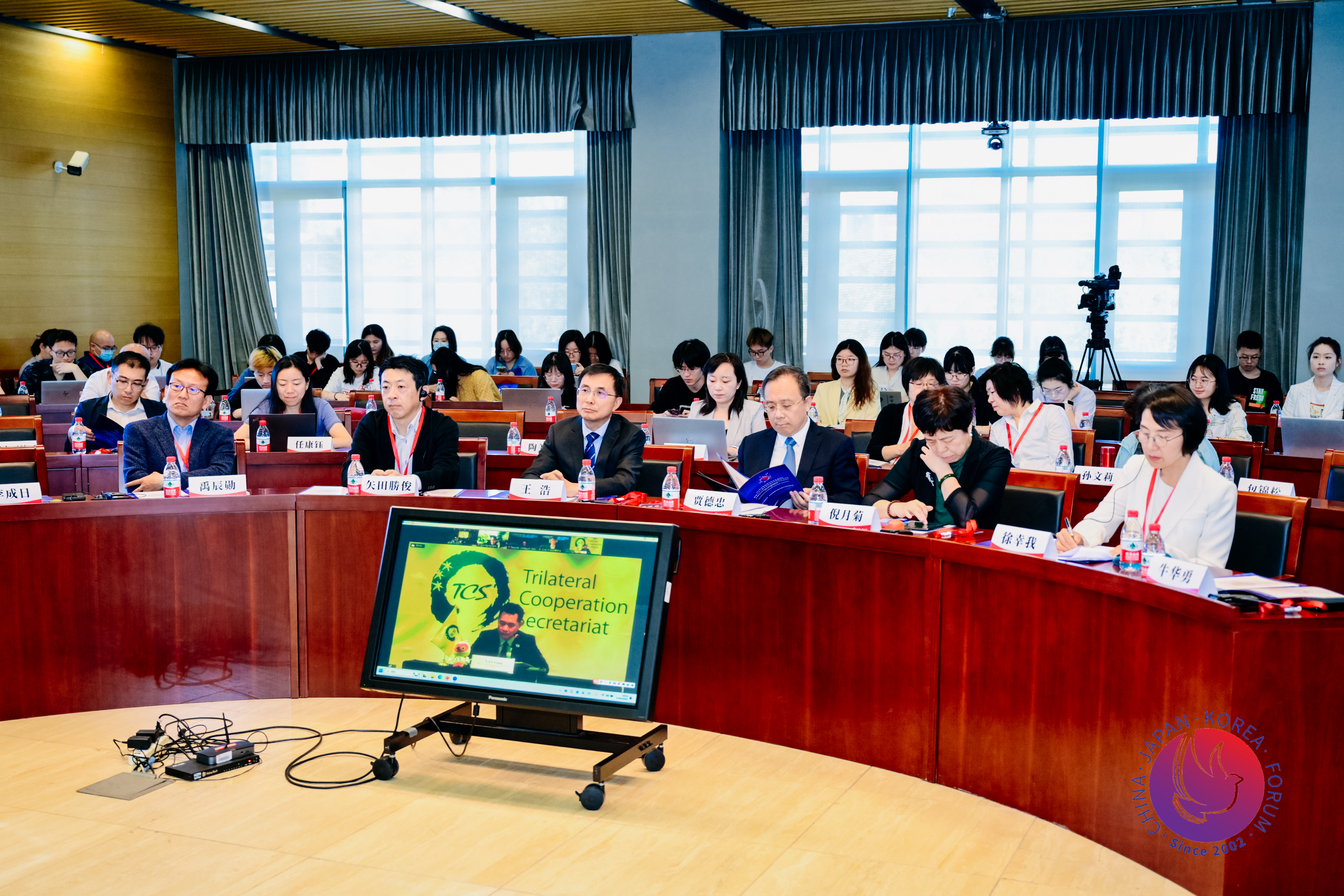
Experts and scholars share their insights on cooperation among China, Japan and the Republic of Korea in a symposium held at Beijing Foreign Studies University (BFSU) on May 31. (PHOTO: BFSU)
By?GONG Qian
Leaders of China, Japan and the Republic of Korea (ROK) attended the Ninth Trilateral Summit Meeting, a significant meeting showing their strong desire to cooperate, on May 27.
In a joint declaration, the trio pledged to implement mutually beneficial cooperation projects centered on six key areas closely, including people-to-people exchanges, economic cooperation and trade, science and technology cooperation and digital transformation.
Experts and scholars from the three countries shared their insights on this high-level meeting and trilateral cooperation in economy, trade and technological innovation at the 2024 International Forum on Regional Cooperation and Development of China, Japan and the Republic of Korea held in Beijing on May 31.
Yan Liang, deputy secretary-general of the Trilateral Cooperation Secretariat, said the joint declaration reaffirms the significance of revitalizing cooperation. He said the secretariat will work closely with all parties to implement the outcomes of the summit, and foster friendly exchanges and pragmatic cooperation in various fields, thus promoting peace, stability and prosperity in Northeast Asia and the rest of the world.
Osamu Onodera, regional representative of Japan External Trade Organization (JETRO) in Northeast Asia and chief representative of JETRO's Beijing office, said the trilateral summit serves as a pivotal mechanism for boosting cooperation among the three nations. He is convinced that the revival of the summit presents a golden opportunity to rekindle the bonds of friendship among the three, thereby catalyzing enhanced regional collaboration and ushering in prosperity for their people.
Haeng-A Seo, chief representative of the China-Korea Science and Technology Cooperation Center, said the ROK is dedicated to enhancing technological cooperation with China. Both sides can play an important role in the global technological ecosystem through complementary cooperation in high-tech industries.
In her speech, Ni Yueju, a researcher at the Chinese Academy of Social Sciences, said that despite the rising competition among China, Japan and the ROK in the global automotive market, the three countries can deepen cooperation in areas such as battery R&D, market strategy, and supply chain management.
She also advocated for strengthening cooperation at the governmental, intermediary, and corporate levels to drive innovation in the automotive sector, with a focus on smart connected vehicles and talent exchanges.
The ROK and China should bolster cooperation in high-tech sectors, particularly in AI and semiconductors, said Professor Nam Eunyoung from Dongguk University in the ROK. She said that China's proactive measures to advance AI semiconductor development present an opportunity for small and medium-sized enterprises from the ROK to integrate into China's AI semiconductor clusters.
Nam emphasized the importance of setting global AI technology standards and proposed that both countries collaborate to establish new AI technology standards for mutual benefit.
The trio will conduct a series of experiments in fields such as life science, fluid physics, combustion science and materials science. Notably, this is the first time that fruit flies have been taken on a Chinese space mission as experimental subjects. What made scientists choose fruit flies? What experiment will they undergo?
